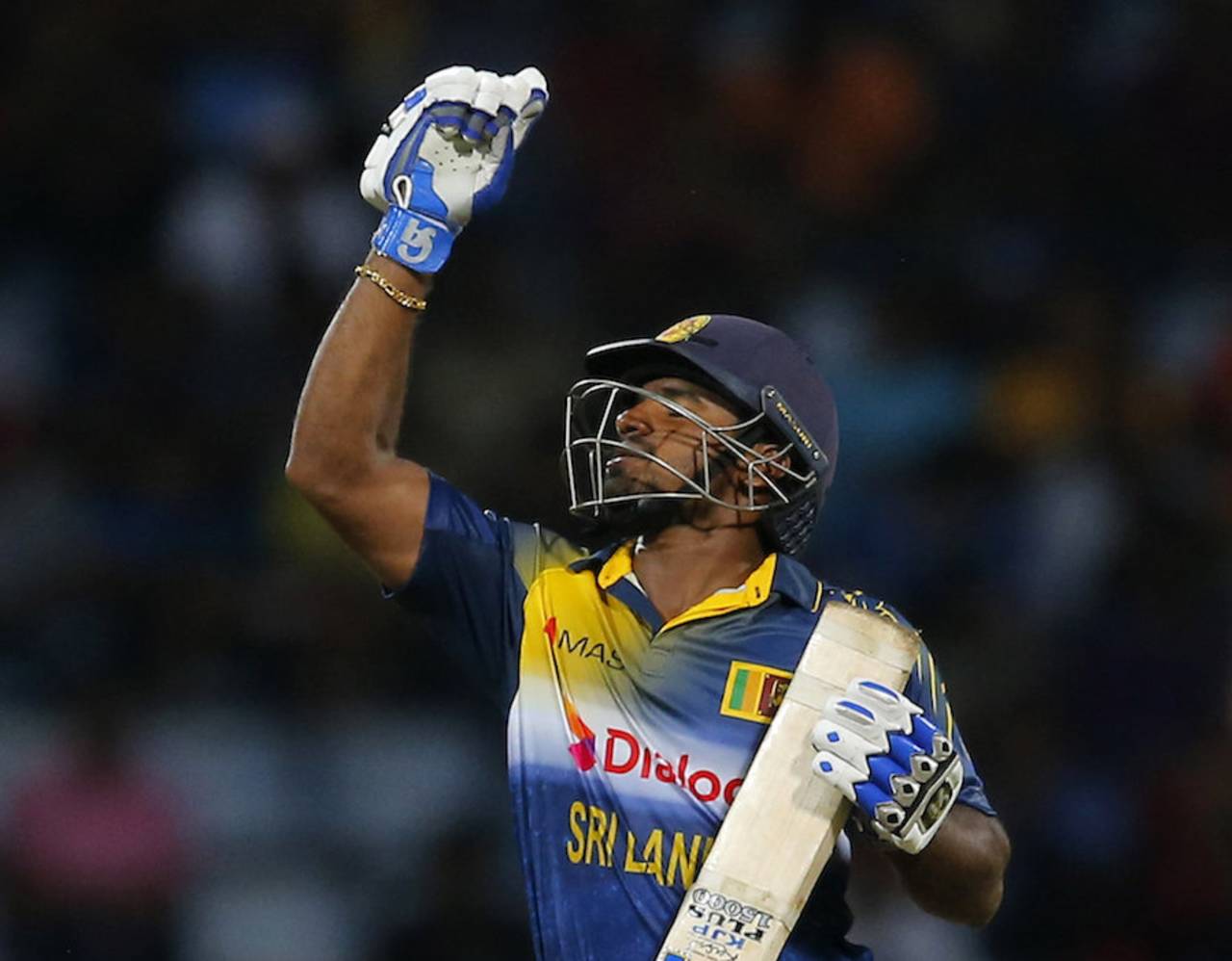How Kusal Perera cleared his name from doping charges
A timeline of Kusal Perera's suspension and the case to have his name cleared, as told by SLC president Thilanga Sumathipala and Kusal's manager Ravi de Silva

Kusal Perera had the full support of SLC President Thilanga Sumathipala after he was provisionally suspended by the ICC in December 2015 • Associated Press
Kusal Perera is having dinner in Dunedin ahead of Sri Lanka's first Test against New Zealand, when he gets a call from the ICC instructing him to check his email. He does so upon his return to the hotel and learns that he has been provisionally suspended for failing a doping test. The sample had been given during Sri Lanka's Test series against West Indies, in October. Perera returns to Sri Lanka the next day.
Perera and his manager Ravi de Silva, retain the services of President's Counsel Dinal Philips. Meanwhile, Sri Lankan chemical pathologist Priyanka Dayanath is also consulted. Dayanath looks over the report from the ICC and advises Perera to contest the findings, as he feels the amount of 19-Norandrostenedione found in Perera's sample is insubstantial.
Thilanga Sumathipala - an old Colombo Cricket Club team-mate of de Silva - is elected president of SLC. Sumathipala asks de Silva if he believes Perera is innocent. When de Silva says he trusts Perera, Sumathipala and his board offer Perera their full assistance.
Perera flies to England with de Silva and undertakes a polygraph test, a hair analysis commonly undertaken in forensics, and also has a separate sample of his urine tested.
More experts are consulted. They suggest the amount of 19-Norandrostenedione in Perera's sample was too low a concentration to conclude the player took a banned substance.
Andrew Fidel Fernando is ESPNcricinfo's Sri Lanka correspondent. @andrewffernando